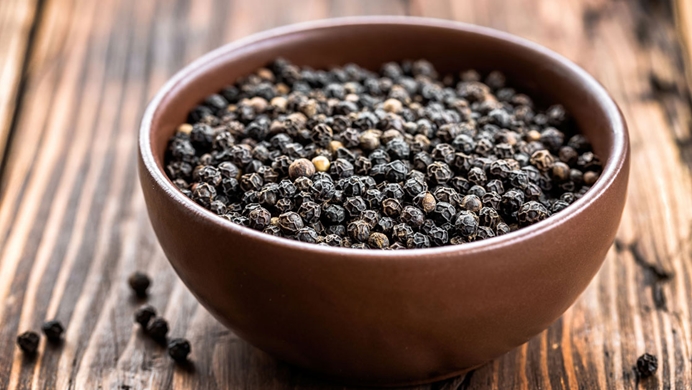
Pepper – King of Spices
Almost everyone knows that a dash of black pepper can add flavor to just about any dish. What you may not know about the “king of spices” is that it comes from a plant that can grow more than 30 feet tall in tropical climates.
Indigenous to India, pepper has been a covetous spice for thousands of years.
The ancient Greeks used it as a currency and offered it as a sacrifice to their gods. Many Greeks even paid their taxes with pepper – something you may wish the IRS would allow. By the time of the middle ages, men calculated their wealth by their stockpiles of this wonderful spice.
Why has black pepper been considered so valuable? Not only does it spice up food, but it’s also an excellent source of manganese, vitamin K, iron, and fiber.
It also improves digestive disorders and keeps the intestines healthy.
That’s right: the taste of black pepper alerts the stomach to secrete extra amounts of hydrochloric acid which helps to digestion. In fact, if our stomachs have a deficiency of this substance, then food will sit in our tummies long enough to give us heartburn and indigestion; when these putrid food particles are passed to the intestines, then a lot of unpleasant symptoms, like flatulence, may occur. So think of pepper as a type of aphrodisiac in that you won’t repel prospective mates.
Black pepper also contains remarkable weight loss properties – the outer layer of the peppercorn fuels the breakdown of fat cells, keeping you slender, energetic, and even younger.
Of course not all peppers are created equal. While all peppers come from the same vine, different kinds result from harvesting the berries at distinct stages of the ripening and processing them in diverse ways. For example, green peppercorns are picked long before maturity in the green stage; white pepper comes from completely ripe peppercorns that have been picked close to maturity. And finally, our beloved black pepper come from berries as they are beginning to ripen from green to yellow and while still relatively immature. They are then boiled for a short time, and then dried naturally in the sun until they’re perfect.
Unfortunately most pepper sold in the U.S. is a mixture from a variety of low-grade peppers bought at the lowest possible price. A superior form of pepper comes from the Lampong district of South-eastern Sumatra, the center of pepper production in Indonesia. Lampong pepper berries tend to be smaller than those of Indian pepper, which gives it a finer flavor than other peppercorns. Lampong pepper is one of the one of the strongest and hottest black pepper with a powerful flavor.